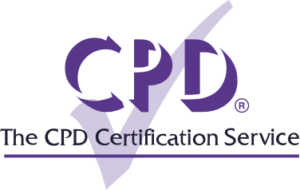In this Childminders CPD Guide
Why do Childminders need CPD?

A childminder plays an important role in providing care to children of all ages. They are responsible for the safety and wellbeing of the children in their care, as well as providing a nurturing environment for them to explore and develop. Childminders will typically plan activities, supervise playtime and provide meals, as well as help with homework and day-to-day routines. They must be registered with Ofsted and follow the Early Years Foundation Stage (EYFS) framework. They must also take part in Continuing Professional Development (CPD) training to ensure they are up to date with current childcare regulations; this is where CPD Online College can help with Continuing Professional Development courses for childminders.
What our customers have to say
Dan King
Mobilisation, Training & Performance Manager

Sophie Aiken
HR Manager

Harriet Lee
Retail Recruitment Manager

What is Ofsted?
Ofsted is the Office for Standards in Education, Children’s Services and Skills in the UK. It is the government body responsible for inspecting and regulating schools and childcare providers, which includes childminders. Ofsted assesses the quality of teaching, learning and care and reports on its findings to the government. It also provides parents, staff and other stakeholders with information about the performance of the childcare provider and makes recommendations for improvement.
Childminders registered with Ofsted in the UK must meet the requirements of the Early Years Foundation Stage (EYFS) as well as local authority regulations. The EYFS sets out the seven areas of learning and development that should shape educational programmes in early years settings. All areas of learning and development must be met in the activities they provide. They should also ensure that they plan and provide activities that are appropriate to the age and stage of development of the children in their care. Additionally, childminders must provide a safe and stimulating environment for the children in their care, which includes doing regular risk assessments and having the necessary safety equipment.
A guide to CPD for childminders
As a childminder in the UK, you need to comply with a range of pieces of legislation including:
- The Children Act 1989.
- The Childcare Act 2006.
- The Statutory Framework for the Early Years Foundation Stage (EYFS).
- Health and Safety at Work etc Act 1974.
- Equality Act 2010.
- General Data Protection Regulations 2018.
The list above is just some of the pieces of legislation that childminders must meet, which is on top of Ofsted and local authority requirements. CPD can help childminders stay up to date in the industry and incorporate any changes into their working practices.
Some CPD Online College courses we provide that can suit a childminder include:
CPD certificates
Childminders have a lot of responsibility so we understand that it can be challenging to meet your CPD requirements. That is why we make all of our courses accessible online so that you can work on them flexibly. Once you enrol on a course, you do not need to complete it in a single sitting. You can save your progress for the next time you log in to complete your course. However, we advise trying to complete the course soon after you have started it so that the knowledge you gain remains fresh in your head. To obtain your CPD certificate for your course you must complete a quiz at the end of your learning, so it can be helpful to do this soon after you have completed your modules.
You can access your certificate as soon as you have passed the end of your course quiz. It is available for you to download and save, or you can print your own hard copy. If you don’t have access to a printer, you can even have CPD Online College post a hard copy of your certificate to you.
Your CPD Online College certificate can be used as a strong piece of CPD evidence. We are professionally regulated, which means that our courses are recognised by all relevant professional bodies. This means that you can show our certificate as proof of meeting some of your professional standards.
Logging CPD hours
Some professionals require you to keep a running record of the time that you have spent on CPD training. You can do this by simply tracking how much time you spend on your CPD training, such as time spent on our courses, research, reading, webinars, events and podcasts. By tracking your CPD hours as you go, it makes them readily available for whenever you need to report them.
Keeping evidence
Tracking your CPD hours, as mentioned above, is one way of keeping evidence that you have been keeping up to date with your CPD training. You can add to this by dating the days that you do some CPD training and also logging the days that you completed the activity. Any training materials you have used or gained during your CPD training can also be used as evidence, so we advise keeping all of these. This can include emails, presentations, PDFs and webinars. Additionally, you can keep track of your CPD activities by using a CPD plan or journal. This will help you to keep organised and easily reference any activities you have completed. We advise that you keep your records and evidence in a safe and secure place to easily refer back to.
Renewing CPD certificates
Most CPD certificates should be renewed every two years. Renewing your CPD certificates with CPD Online College is easy to do by simply completing the next level of your course, or by refreshing your training two years following completion. It is important to keep track of when your certificates will expire so you can make sure you renew your certifications in a timely manner. You could keep this information with your other CPD training records to help you to stay organised with your CPD.
Download our CPD tracker























